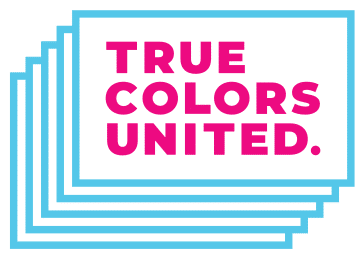
A survey of 71 organizations across 32 European countries finds that over 60% have worked with LGBTIQ youth experiencing homelessness.
A report published today, based on a survey by ILGA-Europe in association with True Colors United, and the Silberman Center for Sexuality and Gender (SCSG) at Hunter College, explores the experiences of LGBTIQ focused organizations in Europe in working on the issue of LGBTI youth homelessness. the findings point to a large prevalence of LGBTI youth homelessness across Europe, with over 60% of LGBTIQ organizations surveyed saying they have worked with young people who have experienced homelessness.
A comparative report from European Federation of National Organizations Working with the Homeless (FEANTSA) also finds that over 60% of homeless services organizations have dealt with young LGBTIQ people experiencing homelessness but often without any training or support. Nearly three-quarters (72%) of respondents indicated that no national policy exists specifically addressing the issue of LGBTI youth homelessness and over half of respondents (59%) reported a lack of governmental support for programs that focus on LGBTI youth homelessness, including nearly half (47%) reporting a lack of funding support for such programs.
[btn text=”DOWNLOAD NOW” link=”https://drive.google.com/drive/folders/1e3l3ezvo4Dnr81T-NVld0toHNvJ7JpoS” tcolor=”#ffffff” thovercolor=”#ffffff” target=”true”]
The ILGA-Europe survey finds that the most prevalent cause for LGBTIQ youth homelessness is identity-related family conflict, as reported by 71%, while lack of institutional support and social rejection are reported by 44% as a major cause.
Just 17% of respondents said their government supports programs targeting LGBTI youth homelessness.
According to Evelyne Paradis, Executive Director of ILGA-Europe: “Across the EU, there is a clear gap when it comes to data regarding LGBTI homeless people. And the lack of knowledge leads to a lack of targeted services, with people ending up in the streets. What is needed is for data collection to be stepped up across Europe, to better understand the phenomena. Based on improved knowledge, policy-makers need to work with service providers and LGBTI organizations in developing targeted solutions and support services to ensure LGBTI people are not left behind.”
The purpose of these surveys is to deepen understanding of the needs of LGBTI youth experiencing homelessness, how those needs are being met or not, and the successes and challenges that LGBTI-focused organizations face in working on the issue of LGBTI youth homelessness and in providing LGBTI youth experiencing homelessness with vital assistance.
Over half (56%) of respondents reported their work with LGBTI youth has been affected by the COVID-19 pandemic, with one organization saying: “We have seen a heightening of the conflict level in domestic environments… Being unable to live their usual double-life and gain the emotional support from other peers who are also LGBTI persons with ethnic minority backgrounds, therefore increases tensions and have increased the risk of exposure among family members.”
Dr. Jama Shelton, of True Colors United and Hunter College, said: “Understanding the challenges organizations face when working with LGBTI youth experiencing homelessness is a critical step in developing a comprehensive strategy for addressing the issue.”
The most commonly reported challenges for homeless services to addressing LGBTIQ youth homelessness included the organization not knowing how to approach the topic of LGBTIQ identities; not being confident in its ability to speak about LGBTIQ issues; and fearing that some LGBTIQ young people will experience violence or abuse in the service setting if their sexual orientation or gender identity is made known.
According to Freek Spinnewijn, Director of FEANTSA: “A clear take away from our research is the need for partnership between our sectors. We need to share our joint expertise to close the existing gap between the homeless and LGBTIQ sectors, which has contributed to the hidden dimension of LGBTIQ homelessness across Europe. Through working together we can provide better and safer services for LGBTIQ youth.”
The ILGA-Europe report provides a baseline of knowledge regarding the experiences of LGBTI-focused organizations in Europe and Central Asia working on the issue of LGBTI youth homelessness. The findings suggest multiple opportunities for resource development, further research, and collaboration.
Evelyne Paradis concluded: “Together with authorities, both the LGBTI and homeless sector have a role to play in combating LGBTI people experiencing homelessness. The intersectional approach to this project is providing the ground-work for cooperation, identifying the scale of the problem and naming key obstacles to supporting LGBTI youth. The global COVID-19 crisis has brought so many vulnerable people in our society into focus, and we cannot look away. It is the responsibility of the European Commission and member states to propose meaningful action on how to tackle the crisis of inequality and to truly include LGBTI people in their measures and policies tackling homelessness.”
How was this report made?
Housing instability and homelessness impact LGBTI youth and young adults across the globe. In 2017, True Colors United began working with ILGA-Europe to organize a session on LGBTI youth homelessness at their annual conference, held in Warsaw, Poland. Since that time, the organizations have collaborated to provide workshops at ILGA-Europe’s annual conferences and worked together with The European Federation of National Organizations Working with the Homeless (FEANTSA) to better understand the realities of LGBTI youth homelessness in Europe.
True Colors United, FEANTSA and ILGA-Europe have worked together to create a plan for conducting research that would establish a baseline of understanding about LGBTI youth homelessness across LGBTI focused organizations and inform the development of resources to aid in addressing the challenges that organizations face when working on this critical issue. The survey, developed by ILGA-Europe and True Colors United and in collaboration with the Silberman Center for Sexuality and Gender at Hunter College, is the first step in that process.
[btn text=”DOWNLOAD NOW” link=”https://drive.google.com/drive/folders/1e3l3ezvo4Dnr81T-NVld0toHNvJ7JpoS” tcolor=”#ffffff” thovercolor=”#ffffff” target=”true”]




